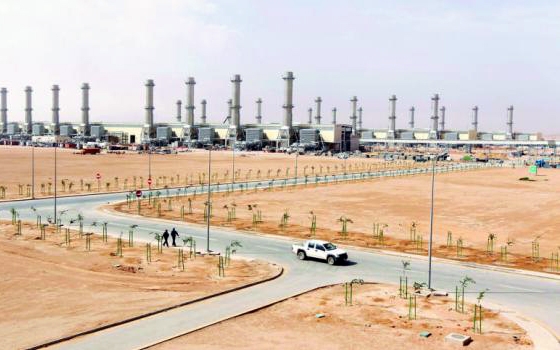Saudi Arabia is nearing the completion of a number of joint electricity projects with other countries in the MENA region as it seeks to boost sources for its domestic electricity consumption, one of the country’s top energy officials told Asharq Al-Awsat.
Nasser Al-Qahtani, deputy governor of Saudi Arabia’s Electricity and Cogeneration Regulatory Authority (ECRA), said that “a number of studies are currently being conducted to finalize projects linking Saudi Arabia’s electricity grid with countries in the region, including Turkey and Egypt.”
Both projects have been in the works since 2012, but have been beset by problems.
A $1.6 billion project to link the Saudi and Egyptian electricity grids has been delayed several times since it was announced that year.
Tenders for contractors involved in the project, which aims to help both countries cope with additional demand during peak consumption times in the summer months, were originally meant to be held earlier this year, but have now been delayed until December.
Construction of the necessary infrastructure was meant to begin in 2015, with the project due to be finished the next year, but this is now also likely to be delayed, the head of Egypt’s state-owned electricity company — which is jointly managing the project with its Saudi counterpart — said in April.
The joint Saudi-Egyptian electricity grid project will allow both Saudi Arabia and Egypt to generate and share an additional 3,000 megawatts of electricity during the peak hours via a 12-mile (20 km) underwater cable crossing the Gulf of Aqaba.
Egypt will transfer electricity to the Kingdom during the latter’s peak consumption times in the afternoon, with Saudi Arabia doing the same for Egypt during its peak consumption times in the evening.
A joint electricity grid project between the Kingdom and Turkey was also announced 2012, with a memorandum of understanding (MOU) signed between the ECRA and Turkey that year.
The project was slated to act as a doorway for Saudi Arabia to export electricity and renewable energy to Europe. But it was shelved following the intensifying of the conflict in Syria that year, since cables linking Saudi Arabia and Turkey’s grids would have to pass through the country.
Al-Qahtani did not say how the problem would be overcome at this time.
He also said the Kingdom had completed a number of studies to help raise its production of solar, nuclear and wind energy, in a bid to reduce its domestic oil consumption. He also said the ECRA was preparing for a “regulatory framework” to help spur the production of nuclear and renewable energy.
In 2013, Saudi Arabia announced it was aiming to become the world’s top producer of renewable energy, targeting investments of $109 billion to raise its renewable energy capacity to 24 gigawatts per year by 2020 and 54 gigawatts by 2032.
The Kingdom is hoping to export solar-generated electricity to Europe during the winter months, when electricity consumption in Saudi Arabia falls due to the reduced need for air-conditioning.
Arab News
17 July






















































